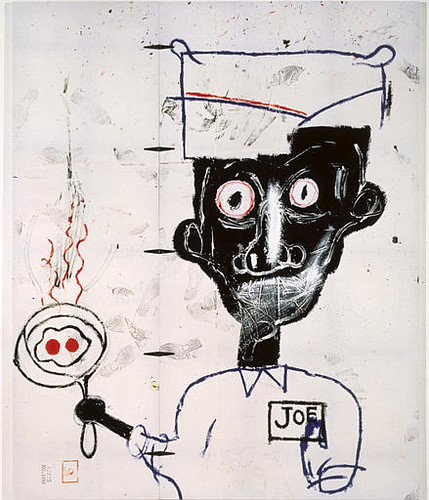I’m starting this blog because I enjoy sharing my likes and dislikes with friends and with strangers who could become friends. I call it slinging hash because my interests vary, and I expect this blog to contain mixed content, much like the inside of my head.
Of course what I really want to share are the things I love and the things I hate. Bruno Schulz is a good example of the former. I knew almost nothing about Schulz when I recently happened to see his book The Street of Crocodiles sitting on a shelf at our local branch of the library. The blurb on the front cover quotes Isaac Bashevis Singer, “He wrote sometimes like Kafka, sometimes like Proust, and at times succeeded in reaching depths that neither of them reached.” Quite a claim, and book blurbs usually exaggerate, but Schulz makes good on this promise.
Here is Schulz’s description of a night at the local theatre:
We found ourselves again in that large, badly lit dirty hall, full of somnolent human chatter and aimless confusion. But when we made our way through the crowd, there emerged before us an enormous pale-blue curtain, like the sky of another firmament. Large, painted pink masks, with puffed-up cheeks floated in a huge expanse of canvas. The artificial sky spread out in both directions, swelling with the powerful breath of pathos and of great gestures, with the atmosphere of that fictitious flood lit world created on the echoing scaffoldings of the stage. The tremor sailing across the large area of that sky, the breath of the vast canvas which made the masks revive and grow, revealed the illusory character of that firmament, caused that vibration of reality which, in metaphysical moments, we experience as the glimmer of revelation.
The passage is reminiscent of Proust’s poetic descriptions of the Paris stage, although by contrast Schulz relied only on the theatre in his home-town, Drohobych Poland, for inspiration.
The following selection, which claims powers for matter extending far beyond animism, reads like a philosophical manifesto written by Kafka:
Treatise on Tailors’ Dummies, or The Second Book of Genesis
“The Demiurge,” said my father, “has had no monopoly of creation, for creation is the privilege of all spirits. Matter has been given infinite fertility, inexhaustible vitality, and, at the same time, a seductive power of temptation which invites us to create as well.”
Schulz was a gifted artist too. He worked as a high school art teacher, and also studied architecture. He never got the chance, however, to create a large body of fiction or art. He was a victim of shooting in the early phases of the holocaust. He was apparently working on a novel to be called The Messiah at the time, and I also recommend the Cynthia Ozick novel, The Messiah of Stockholm, which alludes to this lost work.
Did I mention that The Street of Crocodiles is only 160 pages long? Think of it as a shot-size version of Kafka and Proust; I can live with that oversimplification if it persuades at least one more person to read Schulz.

No comments:
Post a Comment